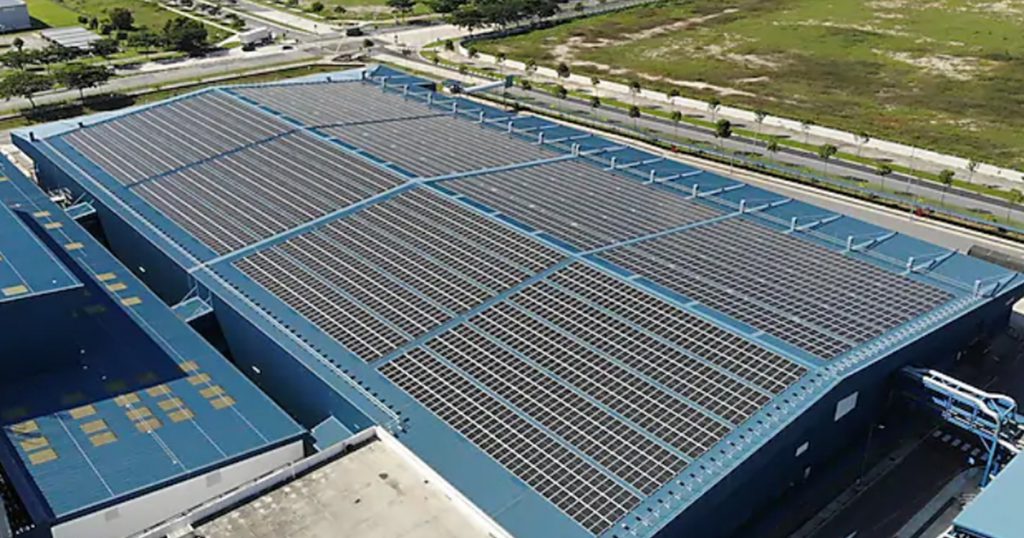Royal Dutch Shell is en route towards improving their environmental responsibility, with plans to install solar photovoltaic power systems at three of their manufacturing and logistic sites in Singapore, with a combined peak capacity of around 3 megawatts.
The first and largest of their three solar farms will power Shell’s lubricant plant in Tuas.
It will be up and running in September, with more than 6,500 solar panels that can “produce approximately 3,300 megawatt hours of renewable energy annually”.
This is enough to power 700 four-room HDB units, according to Shell.
The company also says this will help their Tuas plant reduce “a third of [its] greenhouse gas emissions from electricity use”, or equivalent to taking “about 700 cars off the road for one year”.
The next two solar farms to follow will begin installation at Shell’s Pandan and Jurong Island sites in late 2019 and early 2020 respectively.
These projects will be executed by Shell New Energies, the company’s solar and energy storage solutions arm.
Besides the three confirmed sites, a Shell spokesperson told Reuters that they are also “exploring the potential” of installing solar panels at Pulau Bukom, their largest wholly-owned refinery in Singapore, but has not revealed any additional details yet.
Over years, Bukom has been developed into an integrated oil and petrochemicals site that manufactures fuels, lubricant base oils and specialty chemicals.
Shell recently added two more large crude oil tanks to increase the site’s storage capacity by about 1.3 million barrels.
Singapore is also Shell’s largest petrochemical production and export centre in Asia-Pacific, and it intends to drive their low carbon efforts further here.
Moving in that direction, Shell has signed a Memorandum of Understanding with the Energy Market Authority of Singapore (EMA) to jointly work on encouraging the adoption of energy storage systems.
This could include piloting commercially viable business models with solutions that integrate storage systems and solar power to Shell’s sites.
“Shell Singapore continues to adopt a combination of measures to improve our energy efficiency and reduce our carbon footprint,” said Shell Singapore Chairman Aw Kah Peng.
“At our sites, we are deploying solutions from Shell New Energies, and are actively pursuing opportunities to trial next-generation advanced manufacturing and clean energy technologies. It is our goal to make the transition towards a low-carbon future possible, for our operations and our customers,” he added.
Featured Image Credit: Shell
Also Read: These 2 NTU Alumni Are Powering Singapore (And Its First Apple Store) With Solar Energy
